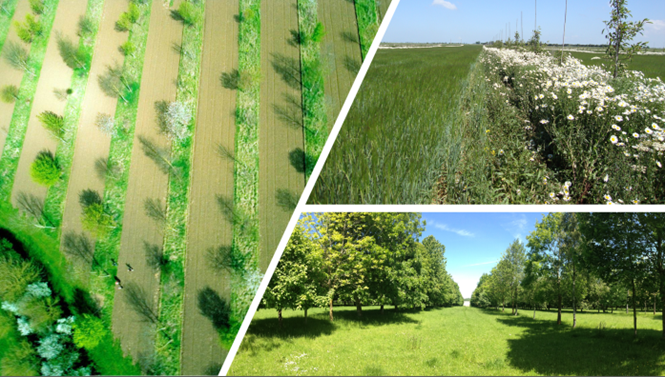Lead Supervisor: Martin Lukac, School of Agriculture, Policy and Development, University of Reading
Email: m.lukac@reading.ac.uk
Co-supervisors: Elena Vanguelova, Forest Research; Steven Newman, Biodiversity International Ltd; Martin Mokros, University College London
The use of sustainable environmental practices in agriculture and their potential role in mitigating climate change has garnered significant attention in recent years. Agroforestry, a purposeful integration of trees and food production on the same land, is emerging as a promising approach to address both agricultural and environmental challenges. Within this broader landscape, this multidisciplinary PhD will examine the influence of extreme climate events on agroforestry trees in the United Kingdom. We assume that the solitary trees scattered across agricultural landscapes react to extreme climate just like the trees in a forest, but we do not really know. Given that the trees we are planting today will grow for many decades, if not centuries, this is a critical assumption underlying their carbon accumulation potential and many other ecosystem services.
This PhD encompasses three fundamental research areas, seeking to shed light on historical tree growth patterns, employ innovative remote sensing techniques, and explore the perceptual aspects of farmers establishing agroforestry systems. Our first research direction delves into historical tree growth patterns. Trees have long been used as natural archives of environmental conditions, and tree ring analysis provides a valuable window into past climatic variations. You will get access to existing data describing past tree growth and enhance these with your own dataset collected from existing agroforestry systems featuring walnut, oaks, or poplars. By comparing and integrating tree ring data with robust historical weather event information, you will describe the immediate and long-term impacts of such events on tree growth.
Our second research strand is centred on applying cutting-edge remote sensing techniques to monitor agroforestry tree health and growth. As technology has advanced, the utilisation of remote sensing data and in-situ measurements has become increasingly vital in the study of vegetation dynamics, such as monitoring tree growth as a function of canopy greenness. Here, you will align historical remote sensing data with the tree ring width dataset. The aim is to develop predictive tools or early-response mechanisms for monitoring the productivity and health of agroforestry trees in the current season.
The third research domain in this PhD program explores the perceptual aspects of farmers engaged in agroforestry. It is widely acknowledged that farmers often rely on their own observations and experiences to make decisions about their land and crops. However, there can be disparities between farmers’ recollections of events and the recorded scientific data. This part of the research aims to understand these disparities and how they impact future expectations and decision-making processes. In collaboration with Biodiversity International, the student will compare and contrast farmers’ perceptions of long-term tree growth with the observations collected during this research.
This PhD program addresses a significant issue: the preference of our society to combat climate change through tree planting. Specifically, you will explore it within the context of expanding tree cover on agricultural land in the UK. With the escalating frequency and severity of extreme climate events, newly planted trees face increasing cumulative stress. By delving into historical growth patterns, utilising remote sensing techniques, and exploring farmer perceptions, this research will position you at the forefront of scientific efforts to understand the role of agroforestry as a sustainable environmental practice. This research offers a dynamic and exciting challenge: to integrate knowledge from the past (tree rings), the present (remote sensing data), and the future (climate change) into a cohesive narrative accessible and understandable to stakeholders. This narrative will illuminate the potential of solitary trees to act as guardians of food production in the UK.

Agroforestry systems combining crop and animal production with trees in England
Training Opportunities
The School of Agriculture, Policy and Development (SAPD has a strong reputation in research in environmental science, international development, and policy impact. We will provide training to enable the student to explore the long-term relationships between tree growth and climate variation. The student will gain expertise in tree ring analysis, remote sensing and stakeholder interaction directly during the PhD work or placements. The student will work closely with Forest Research staff who create and maintain forest monitoring networks, and work with live agroforestry projects, either already established or in the design and plantation process.
The student will undertake two placements, one with Forest Research and one with Biodiversity International.
Student Profile
This PhD will suit a student with a background in environmental science, ecology, forestry or agriculture. Students with knowledge of agroforestry, tree physiology, climate science, and plant-soil relationships would be particularly well placed. An understanding of temperate agriculture or forestry is an advantage. Skills in plant and soil sampling, lab analysis, statistical analysis, data handling, and scripting/programming would be helpful, but training will be provided. The skillset described here is intentionally broad; existing skills and interests will guide the direction in which the student takes the PhD.

